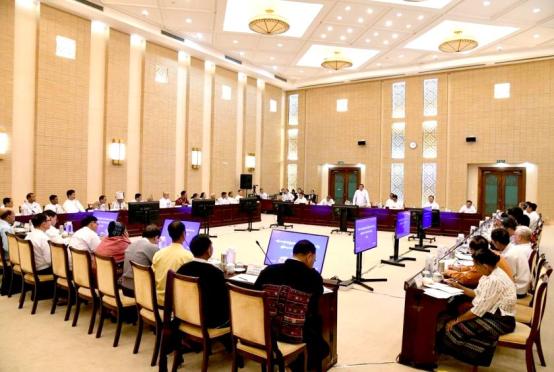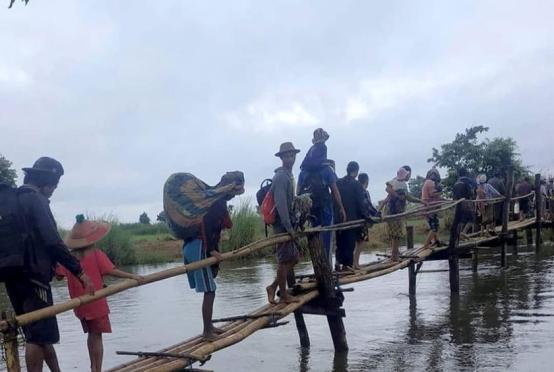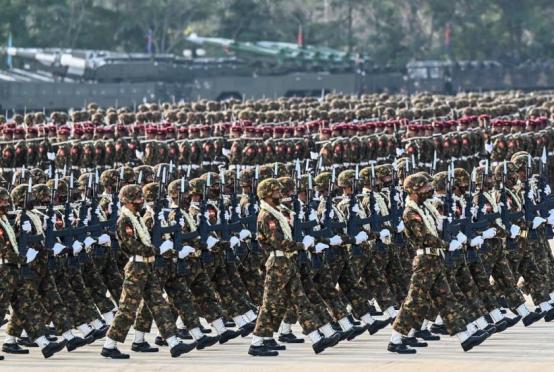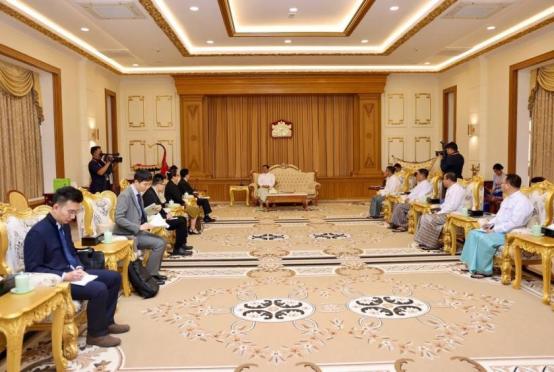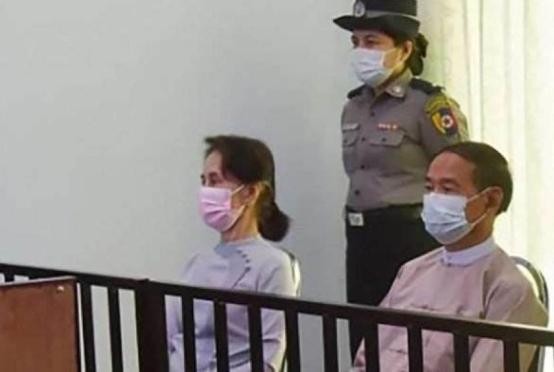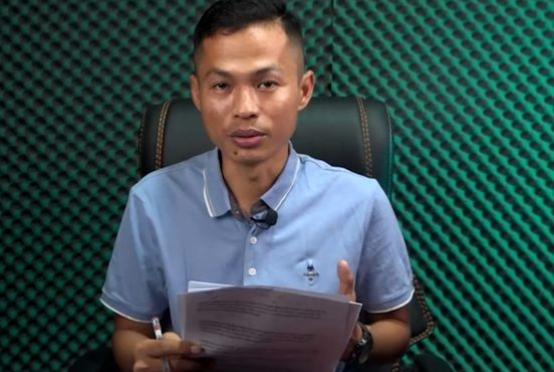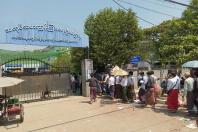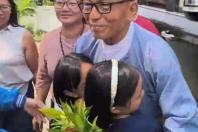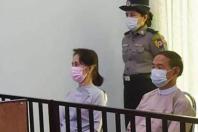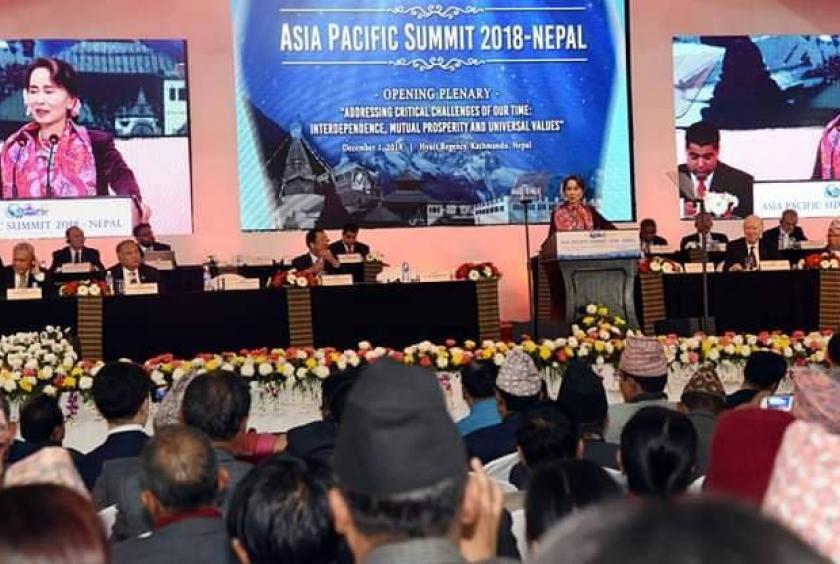
Universal values constitute both the seed from which true partnerships spring and the fruit that good partnerships bear. Nowadays, it often seems as though universal values no longer have a place in this world where norms are set by the powerful with little reference to the needs and constraints of those who do not possess the privileges of wealth and influence, said State Counsellor Aung San Suu Kyi.
The remarks of the State Counsellor came from her speech on “Addressing Critical Challenges of Our Time: Interdependence, Mutual Prosperity and Universal Values” at Asia Pacific Summit 2018 in Kathmandu, Nepal on December 1.
“There are values which few would deny to be of universal relevance. For example, the four Sublime States, the Brahma –vihāras, loving kindness, compassion, sympathetic joy and equanimity, can surely be accepted as values conducive of goodwill, cooperation, and positive partnership, anywhere, everywhere, any time.
“As Myanmar grapples with the daunting task of creating peace and sustainable development out of an unhappy, tangled legacy, we look to critical challenges as opportunities for us to gain true friends who share our belief in equal partnership for peace.
“The world today is going through global uncertainty, trade tensions and power competitions, especially in our region. Traditional and non-traditional threats are posing profound challenges, sometimes from unexpected directions,” said Aung San Suu Kyi.
Aung San Suu Kyi added, “The incessant reports of disasters, terrorism, hunger, disease, migration and displacement, poverty, injustice, discrimination, prejudice, and bigotry in our daily life are overwhelming. There are negative forces everywhere eroding the foundations of peace.
“No nation can survive in solitary splendor. We have to engage with each other, either bilaterally or regionally, to project and protect our national interests and to seek peace and mutual prosperity. Only by promoting a culture of peace in this world of interdependence will it be possible to create harmony between diverse communities and societies.”
Aung San Suu Kyi continued to say, “Peace is essential for sustainable development, that peace and development are two sides of the same coin. Sustainable peace is more than the mere absence of war or conflict. It is a positive force that springs from within the mind of each human being, each family and each society, not merely a temporary condition imposed by force.”
At the basis of conflict is ill-will, which seeks to hurt and to destroy and thus open the way to conflict which, in its turn, spews out an ever renewing cycle of hate and fear, snuffing out the light of peace, said Aung San Suu Kyi.
To break away from this vicious cycle, to reignite the hope of peace, we need to construct a culture of peace that will nurture the positive traits in human nature, to work together not just to promote greater mutual respect and understanding, but also to foster greater confidence in our own ability to stay firmly on the path of peace, said Aung San Suu Kyi.
Edited by Win Htut

